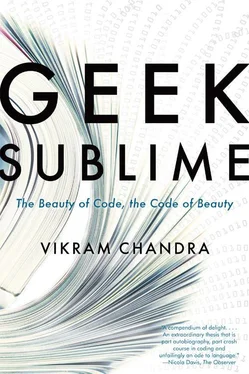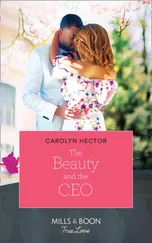Wozniak, Steve. “And Then There Was Apple.” Apple II History. Accessed August 10, 2013. http://apple2history.org/museum/articles/ca8610/.
Wright, Edmund, and John Daintith. A Dictionary of Computing. Online. Oxford University Press, 2008. http://www.oxfordreference.com/10.1093/acref/9780199234004.001.0001/acref-9780199234004-e-2050.
Wujastyk, Dominik. “Indian Manuscripts.” In Manuscript Cultures: Mapping the Field , edited by Jörg Quenzer and Jan-Ulrich Sobisch. Berlin: Walter De Gruyter Inc., 2013.
Yegge, Steve. Foreword to The Joy of Clojure: Thinking the Clojure Way , XVII–XVI. Stamford, CT: Manning Publications, 2011.
Zihotki. “Raven & Event Sourcing.” Ayende@Rahien. Accessed August 17, 2013. http://ayende.com/blog/4530/raven-event-sourcing.
COPYRIGHT ACKNOWLEDGMENTS
Grateful acknowledgment is made to the following for permission to reprint copyright material:
Prose
1. The Wiley Press for extracts from “Guest Editorial” by Butler W. Lampson from Software: Practice and Experience 2, no. 3 (1972): 195–96.
2. Maciej Ceglowski for extracts from “Dabblers and Blowhards” from Idle Words (blog), April 4, 2006. Text available at http://www.idlewords.com/2005/04/dabblers_and_blowhards.htm.
3. David Barrett for extracts from “Why We Don’t Hire.NET Programmers” from Expensify (blog), March 25, 2011. Text available at http://blog.expensify.com/2011/03/25/ceo-friday-why-we-dont-hire-net-programmers/.
4. Derick Bailey for extracts from “Dear Open Source Project Leader: Quit Being a Jerk” from LosTechies.com December 14, 2012. Text available at http://lostechies.com/derickbailey/2012/12/14/dear-open-source-project-leader-quit-being-a-jerk/.
5. Vivek Wadhwa for extracts from “The Face of Success, Part I: How the Indians Conquered Silicon Valley” from Inc.com, last updated on January 13, 2012. Text available at http://www.inc.com/vivek-wadhwa/how-the-indians-succeeded-in-silicon-valley.html.
6. Roli Varma for extracts from “Exposure, Training, and Environment: Women’s Participation in Computing Education in the United States and India” from the Journal of Women and Minorities in Science and Engineering 15, no. 3 (2009): 205–22.
7. James Kwak for extracts from “The Importance of Excel” from The Baseline Scenario (blog), February 9, 2013. Text available at http://baselinescenario.com/2013/02/09/the-importance-of-excel/#.
8. Joshua Bloch for extracts from “Extra, Extra — Read All About It: Nearly All Binary Searches and Mergesorts Are Broken” from Google Research Blog, June 2, 2006. Text available at http://googleresearch.blogspot.com/2006/06/extra-extra-read-all-about-it-nearly.html.
9. P. N. Furbank, copyright © P. N. Furbank, for permission to reprint two postcards (page 229) written by Alan Turing to Robin Gandy, from the series “Messages from the Unseen World,” The Turing Digital Archive, King’s College, University of Cambridge. Postcards available at http://www.turingarchive.org/viewer/?id=154&title=14 and http://www.turingarchive.org/viewer/?id=154&title=16.
Poetry
1. Oxford University Press for “What could my mother be to yours?” by Cempulappeyanirar, translated by A. K. Ramanujan in The Interior Landscape: Love Poems from a Classical Tamil Anthology , Oxford University Press, 1994.
2. Susie Tharu and K. Lalita for “A woman well set free!” by Sumangalamata and “If I ask her not to get too close” by Muddupalani, translated by Susie Tharu and K. Lalita in Women Writing in India: Love Poems from a Classical Tamil Anthology , The Feminist Press at CUNY, 1993.
3. City Lights Press, copyright © 1998 by Andrew Schelling, for “Black swollen clouds” and “To Her Daughter” by Vidya, and “Nights of jasmine & thunder” by Shilabhattarika, translated by Andrew Schelling in The Cane Groves of Narmada River: Erotic Poems from Old India , City Lights Books, 1998.
4. The Wylie Agency for “A poet should learn with his eyes” by Kshemendra, translated by William Stanley Merwin and Jeffery Moussaieff Masson in East Window: The Asian Translations , Copper Canyon Press, 1998.
5. Columbia University Press for “I don’t know mantra from tantra” from Karpūmmañjarī , 1.22–23, translated by Ronald M. Davidson in Indian Esoteric Buddhism: A Social History of the Tantric Movement , Columbia University Press, 2002.
Figures
1. Martin Howard for figures 3.13, 3.14, 3.15, 3.16 and 3.17. Images (and videos) available at http://randomwraith.com/logic.html. Martin Howard is a physicist from the UK with a keen interest in mechanical computing.
2. Alex Papadimoulis of TheDailyWTF.com for figure 6.1. Image available at http://img.thedailywtf.com/images/201101/DependencyGraph.png.
3. MIT Libraries for figure 4.3.
Every effort has been made to trace copyright holders and obtain permission; any omissions brought to our attention will be remedied in future editions.
VIKRAM CHANDRA is the author of three highly acclaimed works of fiction, most recently Sacred Games , which won the Hutch Crossword Award for fiction in 2006. Chandra lives in Oakland and teaches at the University of California, Berkeley.












